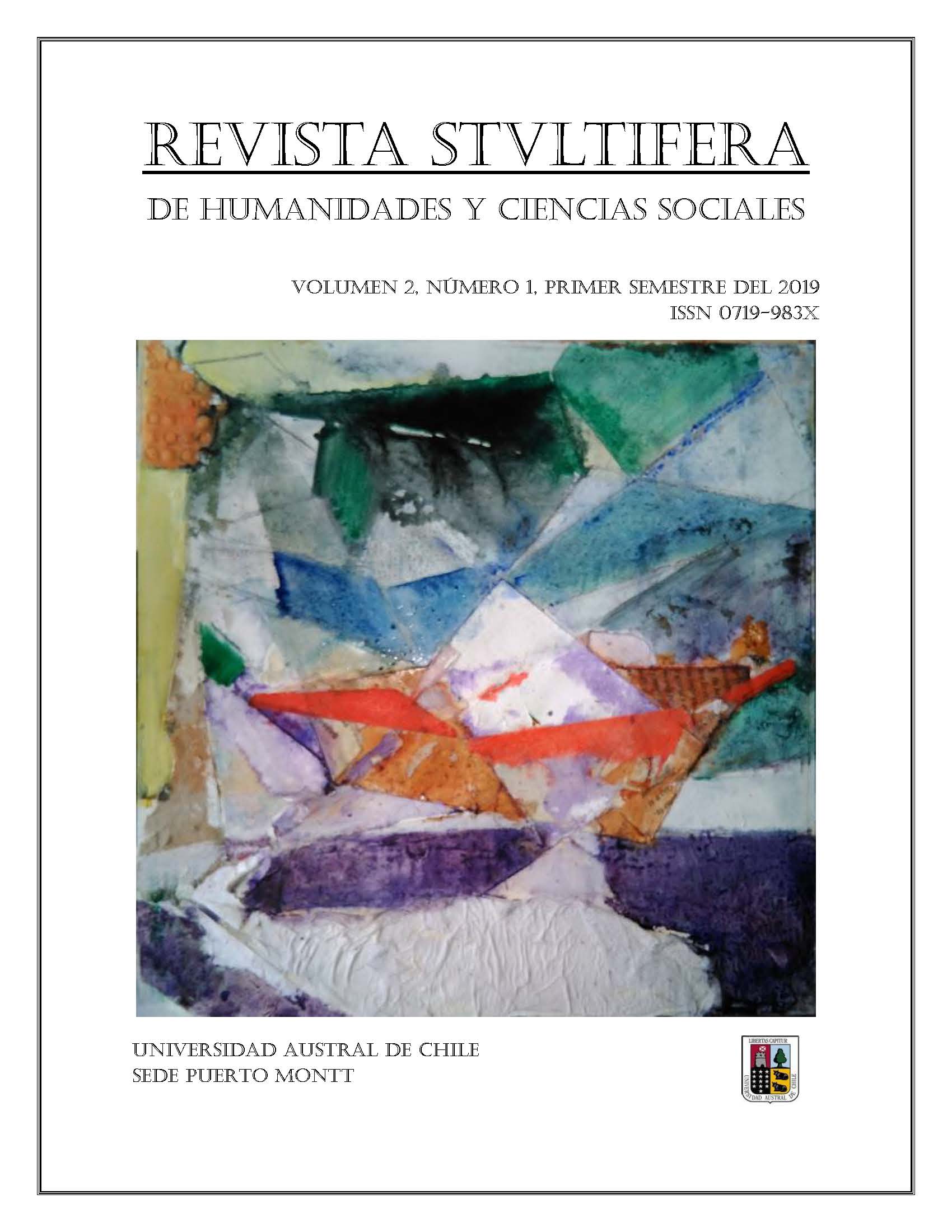The Altazor poem as a deconstruction of language
Main Article Content
Abstract
Huidobro’s famous poem Altazor, Or, a Voyage in a Parachute has been a target of accusations of unintelligibility. Critics such as Ortega (2000) state that, when reading the text “we are offered with poetry; however, as we explore it at depth, it fades into emptiness, leaving behind nothing but the trail of its inconsistency” (p. 123). Two main circumstances seem to be the causes of this impeachment. On the one hand, the violence over language exerted by the poem challenges the possibility of giving a global interpretation of the poem. On the other hand, the closing chant (VII) appears to resist any kind of interpretation since it is composed mainly of graphs that cannot be acknowledged as words. Against this appraisal, I argue that a global interpretation of Huidobro’s poem is possible and that this interpretation permits us to attribute a plural meaning to Chant VII; namely, a general meaning, a theoretical-specific meaning, and a magical meaning. In order to support this argument, I carry out two tasks. First, I present key ideas that support my thesis about the rightfulness of reading the poem as a deconstruction of language that aims to reach its phonic dimension. Then, I explain how the deconstructive process takes place along the poem and how the understanding of this destructive-creative movement unlocks the triple meaning of the final moment of this literary text – Chant VII-.
Article Details
Usted es libre de compartir (copiar y redistribuir el material en cualquier medio o formato) y adaptar (remezclar, transformar y construir sobre el material). El licenciante no puede revocar estas libertades siempre y cuando usted siga los términos de la licencia.
La licencia se da bajo los siguientes términos:
Atribución: debe dar el crédito adecuado, proporcionar un enlace a la licencia e indicar si se realizaron cambios. Puede hacerlo de cualquier manera razonable, pero no de ninguna manera que sugiera que el licenciante lo respalda a usted o a su uso.
No comercial: no puede utilizar el material con fines comerciales.
Sin restricciones adicionales: no puede aplicar términos legales o medidas tecnológicas que restrinjan legalmente a otros de hacer cualquier cosa que la licencia permita.

